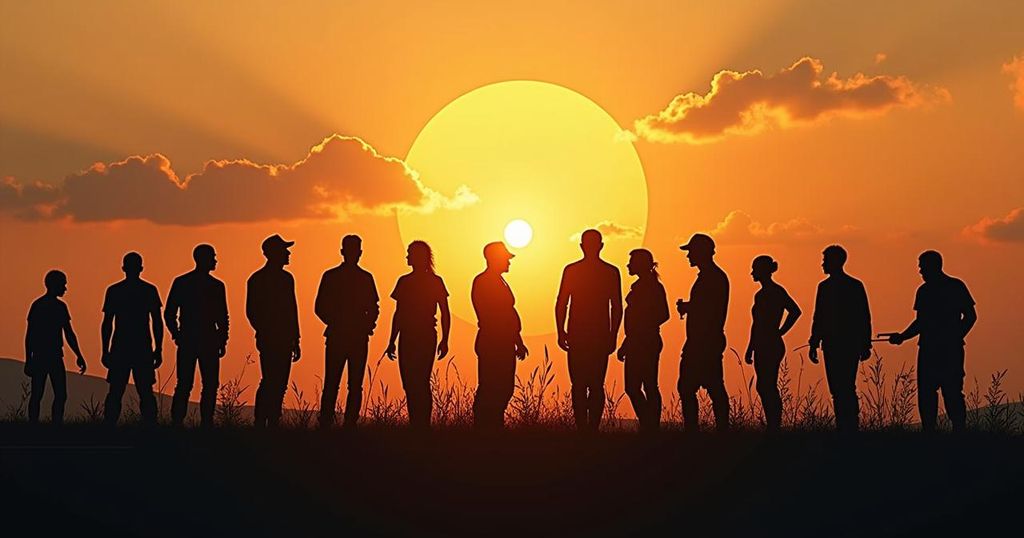The DRC faces ongoing violence and challenges stemming from natural resource exploitation. Recent dialogue efforts between the DRC and Rwanda show promise, yet significant issues such as militarized armed groups, exploitation of resources, and political tensions persist. Bintou Keita from MONUSCO highlights the need for a collective international effort to stabilize the region and support peace initiatives.
The Democratic Republic of Congo (DRC) continues to face significant challenges, highlighted by ongoing violence in the eastern regions, the trafficking of natural resources, and general instability. In a recent briefing to the UN Security Council, Bintou Keita, the Secretary-General’s Special Representative for the DRC and head of the United Nations Organization Stabilization Mission in the Democratic Republic of the Congo (MONUSCO), emphasized the necessity for a collective effort at the national, regional, and international levels to support the country in attaining peace. Although there has been a welcome reduction in hostilities since a ceasefire was established on July 30, between the DRC and Rwanda, Ms. Keita asserted that the goal of peace remains elusive. She noted that an active dialogue framework is in place to facilitate mediation efforts between the two nations, providing a pathway toward resolving ongoing conflicts. Despite incremental progress in political reforms, the DRC is grappling with heightened competition over natural resource exploitation, particularly in the Ituri province, where armed groups compete for control of lucrative mining areas. With the rise of semi-mechanized gold mining, these armed factions have evolved into militarized enterprises, bolstered by financial gains from illicit activities. The M23 military group’s consolidation of power in North Kivu allows it to dominate coltan production—a vital component in electronics—resulting in substantial profits that directly fuel the conflict and exacerbate civilian suffering. Furthermore, the threat of the Allied Defense Forces (ADF) poses a significant challenge. The ADF has ramped up violent attacks in North Kivu and Ituri, taking advantage of diverted military resources originally intended to combat M23. Displacement figures are alarming, with approximately 2.4 million people now seeking safety in inadequate conditions, at heightened risk of disease outbreaks. Political tensions also brew, characterized by restricted civil liberties and increased reports of sexual and gender-based violence, stressing the dire humanitarian situation. Ms. Keita underscored the importance of international cooperation to bolster peace efforts, particularly emphasizing Angola’s ongoing mediation as a critical opportunity for reducing tensions and fostering dialogue. Potential pathways include investing in local communities and maintaining a strong protective presence for civilians in conflict zones. The UN is also striving to enhance civilian protection efforts, notably in areas affected by M23, while planning a strategic disengagement from South Kivu to empower DRC’s own stabilization efforts. As MONUSCO prepares to withdraw from specific regions, Ms. Keita pledged that the mission would continue to advocate for peace and support humanitarian efforts until the very end, as the situation in the DRC remains precarious, subsisting on fragile foundations of hope.
The Democratic Republic of Congo is a nation marked by a complex history of conflict, particularly in its eastern provinces, where various armed groups vie for control over rich natural resources. The United Nations has maintained a presence through MONUSCO to stabilize the region and assist in political reform. Recent developments such as a ceasefire between the DRC and Rwanda have created a faint glimmer of hope for dialogue, yet challenges continue to proliferate due to resource exploitation, political unrest, and humanitarian crises. The situation necessitates a concerted international effort to secure peace and protect civilians.
The ongoing situation in the DRC underscores the critical need for a united approach to restore peace and stability. The collective engagement of national, regional, and international actors is paramount to address the challenges of violence and resource exploitation. Through continued support for dialogues and humanitarian efforts, there is potential for fostering a more stable environment where the Congolese population can thrive free from the shadow of conflict.
Original Source: news.un.org






